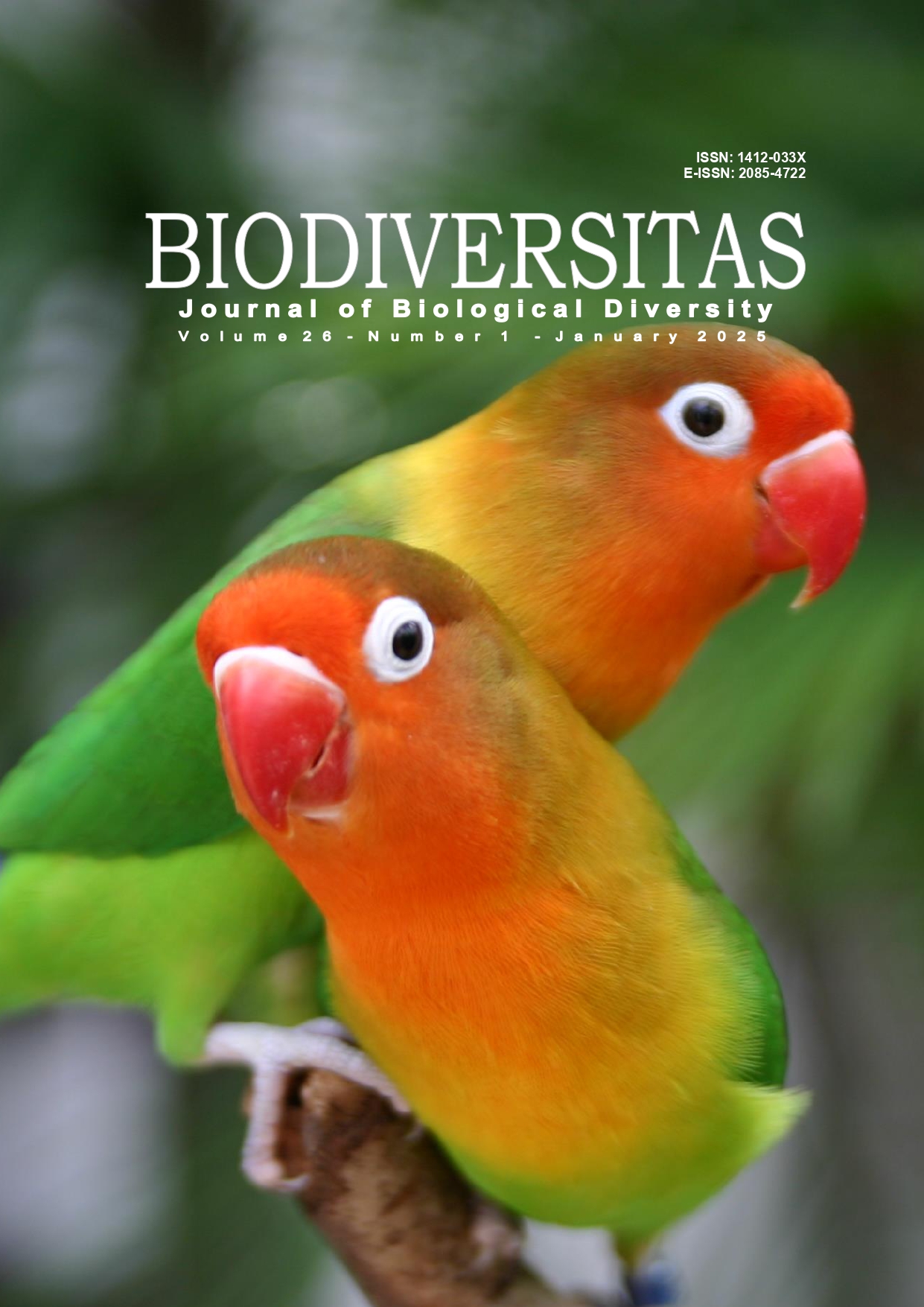Enhanced mycorrhiza helper bacterial inoculant for improving the health of Arabica coffee seedlings grown in nematode-infected soil
##plugins.themes.bootstrap3.article.main##
Abstract
Abstract. Hindersah R, Asyiah IN, Amaria W, Fitriatin BN, Mudakir I, Banerjee S. 2025. Enhanced mycorrhiza helper bacterial inoculant for improving the health of Arabica coffee seedlings grown in nematode-infected soil. Biodiversitas 26: 127-124. The Arbuscular Mycorrhizal Fungi (AMF) and Mycorrhiza Helper Bacteria (MHB) combine to combat the Pratylenchus coffeae nematode infection on coffee plantations sustainably and synergistically. Additionally, AMF facilitates the availability of phosphorus in plants. The objectives of present study are to formulate an enhanced MHB liquid inoculant containing Bacillus subtilis and Pseudomonas diminuta, and to test its efficacy in controlling P. coffeae in roots, improving P status in soil and plants, and promoting the growth of Arabica coffee seedlings infested with the nematodes. MHB liquid inoculant was enhanced by optimizing molasses, nitrogen, phosphorus, and MHB concentrations. The five treatments were used, and five replications were in a randomized block-design greenhouse experiment to investigate the AMF Glomus agregatum and MHB inoculant. The improved substrate for MHB liquid inoculant comprised 2% molasses, 0.05% NH4Cl, and 0.1% KH2PO4, with a 2:3 initial volume ratio of B. subtilis and P. diminuta. Scaling up the MHB inoculant in the 2 L reactor boosted the bacterial population to 1010 CFU/mL and the P content to 100 mg/kg. Applying 200 AMF spores and 109 CFU/mL MHB increased leaf number, plant P uptake, and soil P while decreasing root damage and nematode population in soil and roots. Combined AMF and MHB reduced P. coffeae infestation in roots by 70.79% and increased P content in soil and plants by 57.2% and 61.9%, respectively.


 https://orcid.org/0000-0003-0281-2363
https://orcid.org/0000-0003-0281-2363